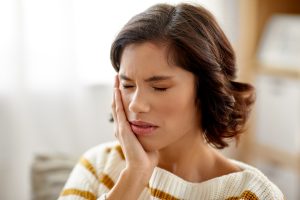Do you have a yeast infection (candidiasis) and are looking for ways to stop itching? This article will tell you how to stop itching from yeast infection. Below we discuss some tips and tricks that can help. First, we’ll look at some of the most common causes of genital itching. We will then explore ways to stop itching before sharing a few tips on how to prevent future candidiasis infections from occurring.
How to stop itching from yeast infections
Are you itching badly? Don’t panic. You can do several things to stop the itching from vaginal yeast infection.
Cold compress
A cold compress numbs the area and reduces inflammation. You can use a cold pack, ice cubes in a plastic bag, or cold cloth. Apply the compress for a few minutes at a time. Repeat as needed. You can also try taking a cool bath or shower to help relieve the itching caused by the infection.
Avoid hot baths or showers
Hot water can make the itching worse. Therefore, avoid using hot water while bathing or showering. You may also want to avoid scented soaps, bubble baths, and aromatic products. These can irritate the skin. If the itching is terrible, you may want to consider switching to an unscented soap.
Wear loose, cotton clothing
Tight pieces of clothing can rub and irritate the skin. Instead, wear loose-fitting cotton clothing to help keep the area dry and cool. Cotton undergarment is a good choice. Avoid wearing nylon or other synthetic fabrics. These can trap moisture and make the itching worse.
Topical cream or ointment
Several over-the-counter topical creams and ointments can help to stop the itch. Some of the most popular ones include calamine lotion, cortisone cream, and antihistamines.
Talk to your doctor if you’re unsure which one to use or if the itching is severe. They may prescribe a more potent medicine or can also check for any other conditions that may be causing the itching.
Take an oral antihistamine
If topical creams and ointments don’t seem to be helping, an oral antihistamine may be necessary. This will help to reduce the histamine response that is causing the itch. Talk to your doctor before taking any medication. They can recommend the right one and ensure there are no interactions with other medical treatments you’re taking.
Avoid scratching
This will probably not be easy, but avoiding scratching the itch is essential. When you scratch an itch, you’re doing more damage than good. You may create small skin tears that can lead to infection. You may also be spreading the yeast or bacteria, causing the infection. So try to resist the temptation to scratch and use some of the other tips in this article to help relieve the itch.
Over-the-counter treatments
Many different over-the-counter treatments can help in treating candidiasis. Talk to your doctor before purchasing any of these, as some may not be appropriate.
Vaginal creams and suppositories
These are the most common treatments for candidiasis. They come in various formulations, including one-day, three-day, and seven-day options. Treatment depends on your condition. Always follow the directions on the package.
Oral anti-fungal medications
These medications are taken in the form of pills or tablets. They are typically used for more severe infections that don’t respond to creams or suppositories. Some of the most common oral anti-fungals include fluconazole (Diflucan), itraconazole (Sporanox), and terbinafine (Lamisil).
Try home remedies
Several natural remedies can help you treat a yeast overgrowth infection. Some of the most popular ones include yogurt, and garlic, among others. Some might consider using remedies like coconut oil, boric acid, sitz bath, or baking soda baths. However, consult your medical expert before trying anything, as some may not be appropriate for you.
Yogurt– There are live bacteria in yogurt that can help fight candidiasis and vaginal itching. Apply plain, unsweetened yogurt. You can also insert yogurt into the vagina using a tampon.
Garlic – Garlic has anti-fungal properties that may help fight the infection. Insert a garlic clove or apply minced garlic paste to the affected area.
Tea tree oil- This oil possesses rich anti-fungal and antibacterial properties. Apply a small amount of diluted oil to the affected area. Additionally, a few drops of the oil in a bath will go a long way to ease your vaginal itching.
If the itch is severe or persists despite home treatment, you must see your doctor. Your doctor can prescribe stronger medications that may be necessary to get rid of the infection.

How to prevent future vaginal yeast infections
An overgrowth of Candida albicans. You can prevent vaginal infections by maintaining a healthy vaginal environment.
The vagina is a self-cleaning organ with natural bacteria to keep it healthy. In addition, the vagina is acidic, with a pH level of 3.8 to 4.5, preventing yeast from growing and causing an infection. However, yeast can grow and cause an infection when the pH balance changes and disrupts vaginal health causing vaginal itchiness.
Some factors that can change the pH balance include:
- Douching
- Using scented soaps or feminine hygiene products
- Wearing tight clothing or pantyhose
- Taking antibiotics
- Pregnancy
To maintain a healthy vaginal pH balance;
Avoid douching or using feminine hygiene sprays. These products can change the pH balance in the vagina and lead to unusual vaginal discharge, candidiasis, or bacterial vaginosis. Douching can also remove the beneficial bacteria in the vagina, making it more susceptible to bacterial vaginosis or candidiasis.
Wear cotton underwear – Cotton is a breathable fabric that helps to keep the vagina dry.
Avoid tight-fitting clothing – Tight-fitting clothing, such as pantyhose and yoga pants, can cause moisture to build up and lead to an infection. Vaginal dryness is crucial.
Avoid scented products around the vagina, such as scented tampons, pads, or soaps. In addition, some products contain chemical irritants that can cause vaginal itching. These products can change the pH balance in the vagina and lead to infection.
If you are taking antibiotics for conditions like sexually transmitted infections, ensure to eat yogurt or take a probiotic supplement. Antibiotics kill most of the good bacteria in the vagina and lead to an overgrowth of yeast and vaginal itching.
Change out of wet clothing. Wet clothing, such as swimsuits and workout clothes, should be changed as soon as possible.
While some contraceptives don’t cause yeast infections to occur, some forms of hormonal birth control can significantly increase the risk of infection.
Conclusion: How to stop itching from yeast infection
There you have it! A yeast overgrowth infection is common and caused by an overgrowth of the fungus Candida Albicans. The infection can occur in different body parts, such as the mouth, throat, or vagina. You can treat yeast infections with over-the-counter medications, such as yeast infection creams, suppositories, or oral antifungals.
Home remedies, such as yogurt and garlic, can also help to treat the infection. However, if the vaginal itching is severe or persists despite home treatment, you must see your doctor. Your doctor can prescribe stronger medications that may be necessary to get rid of the infection.
To prevent yeast infections, it’s crucial to maintain a healthy vaginal environment. Avoid douching, wear breathable cotton undergarments, and avoid tight-fitting clothing. If you are taking antibiotics, be sure to eat yogurt or take a probiotic supplement. Antibiotics will kill good bacteria in the vagina and lead to an overgrowth of yeast. Change out of wet clothing as soon as possible. Wet clothing can cause moisture to build up and lead to skin diseases or infections.
You can prevent yeast infection by following these tips. We hope this article has proven helpful in learning how to stop vaginal itching from yeast infection. Contact our team of medical experts at DrAlexa if you have more questions. We’re happy to help!





